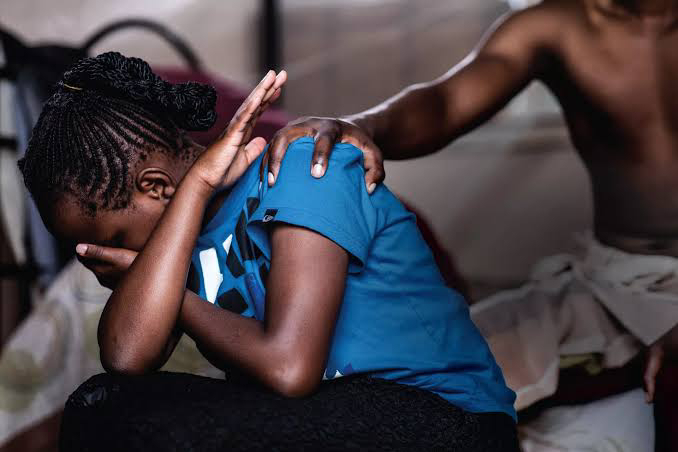STORY By ERASTUS MUTURI
In the quiet corners of Kenyan homes, behind the walls that should offer safety, a silent crisis is unfolding. Domestic violence, once whispered about in hushed tones, has now become a loud cry for help. The increasing number of cases, from physical abuse to emotional and financial control, paints a grim picture of a society struggling with deep-rooted issues of power, culture, and economic instability.
Some victims of domestic violence stay with their abusers due to being financially disenfranchised.|UNICEF
Recent reports indicate a worrying rise in domestic violence across the country, affecting men, women, and children alike. What is fueling this surge, and what can be done to break the cycle of violence?
Domestic violence in Kenya has long existed, but recent years have seen a disturbing spike. According to reports from the Kenya National Bureau of Statistics (KNBS) and the Gender Violence Recovery Centre (GVRC), cases of intimate partner violence have increased significantly. The COVID-19 pandemic exposed the fragility of many households, with financial struggles and prolonged confinement escalating tensions, leading to increased reports of domestic abuse.
Domestic violence is not just physical abuse. It takes many forms, including:
-Physical abuse. Assault, battery, and severe beatings that often lead to injuries or even death.
-Emotional and psychological abuse – Verbal insults, intimidation, and manipulation that leave victims feeling worthless and trapped.
-Sexual violence – Marital rape and forced sexual acts, which remain difficult to report due to societal stigma.
-Economic abuse – Financial control, where one partner denies the other access to resources, leaving them dependent and powerless.
Unemployment and financial struggles are some of the biggest triggers of domestic conflicts. When providers cannot meet family needs, frustration often turns into aggression. The post-pandemic economic downturn and rising cost of living have worsened the situation, leading to increased domestic disputes.
Deep-seated patriarchal beliefs in Kenya often normalize gender-based violence. In many communities, women are expected to be submissive, and reporting abuse is seen as bringing shame to the family. Some men also face abuse but rarely speak up due to fear of ridicule.
Alcohol and drug abuse have been linked to many cases of domestic violence. Intoxication lowers inhibitions, making perpetrators more likely to resort to violence during conflicts. Many victims report that their abusers were under the influence when incidents occurred.
While Kenya has strong laws against domestic violence, including the Protection Against Domestic Violence Act (2015), enforcement remains weak. Many victims hesitate to report cases due to fear of retaliation, slow legal processes, or lack of confidence in the police and judicial system.
Many abusers come from backgrounds where violence was normalized. Children who grow up witnessing domestic abuse often become perpetrators or victims themselves, continuing the cycle into adulthood.
Many victims, especially women, stay in abusive relationships due to fear, lack of financial independence, or concern for their children. However, prolonged abuse often leads to separation, leaving children in unstable environments.
Victims of domestic violence suffer from anxiety, depression, PTSD, and low self-esteem. Many live in constant fear, afraid to speak out or seek help.
The most tragic outcome of domestic violence is death. In recent years, Kenya has seen an increase in cases where domestic disputes turn fatal, with partners killing each other in fits of rage.
Domestic violence reduces productivity as victims struggle to function at work or school. It also burdens healthcare systems with cases of physical and psychological trauma.
The fight against domestic violence requires collective action from individuals, communities, and the government.
Authorities must ensure that domestic violence laws are not just on paper but actively enforced. The police need better training to handle cases sensitively, and courts must prioritize justice for victims.
More shelters and crisis centres should be established to offer victims a way out. Many abused individuals stay because they have nowhere else to go. Support systems like counseling and financial assistance can help them rebuild their lives.
Communities must challenge harmful traditions that normalize abuse. Religious and cultural leaders should speak out against domestic violence, encouraging victims to seek help rather than suffer in silence.
Both victims and perpetrators need access to counseling. Perpetrators, especially those with anger issues or past trauma, should be rehabilitated to prevent repeat offenses.
Many victims, especially women, stay in abusive relationships because they lack financial independence. Economic empowerment programs, such as vocational training and microfinance initiatives, can help them gain stability and escape abusive situations.
The government and non-governmental organizations should invest in public awareness campaigns. Educating people about their rights, the dangers of domestic violence, and where to seek help can encourage more victims to come forward.
The rise of domestic violence in Kenya is a crisis that can no longer be ignored. While progress has been made in creating laws to protect victims, more needs to be done to ensure that justice is served and that those suffering in silence find a way out.
Domestic violence is not a private issue—it is a societal problem that affects everyone. Breaking the cycle requires collective effort, from government intervention to cultural change and community support. Until every home is a place of safety and not fear, the fight against domestic violence must continue.
The Feature Story Writer is a Second Year Student at Chuka University pursuing a Bachelor of Arts Degree in Journalism and Mass Communication












 MWINGI TIMES for timely and authoritative news.
MWINGI TIMES for timely and authoritative news.
No comments
Post a Comment